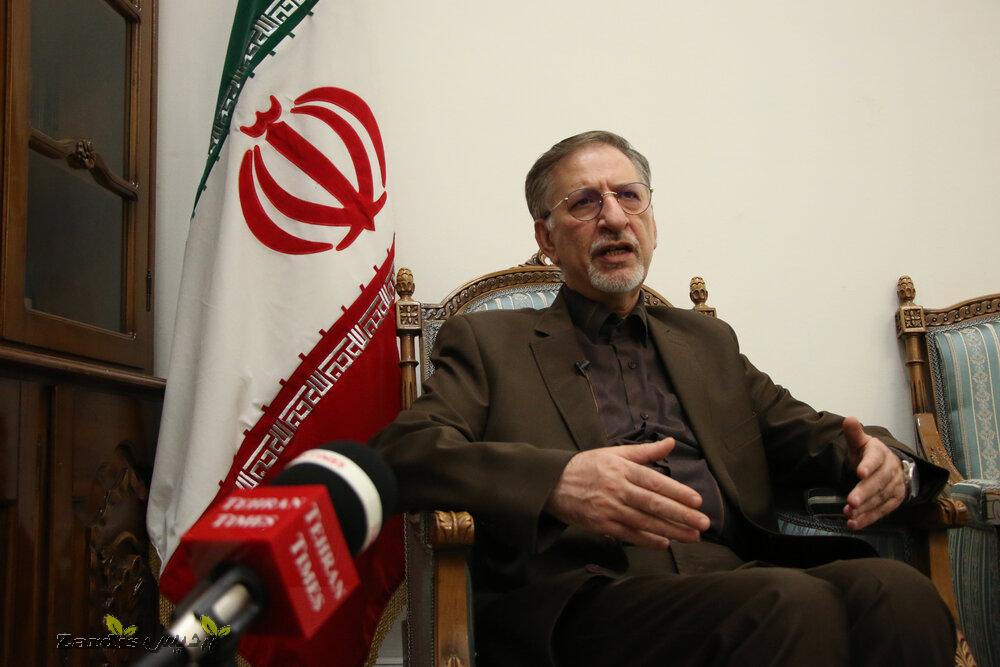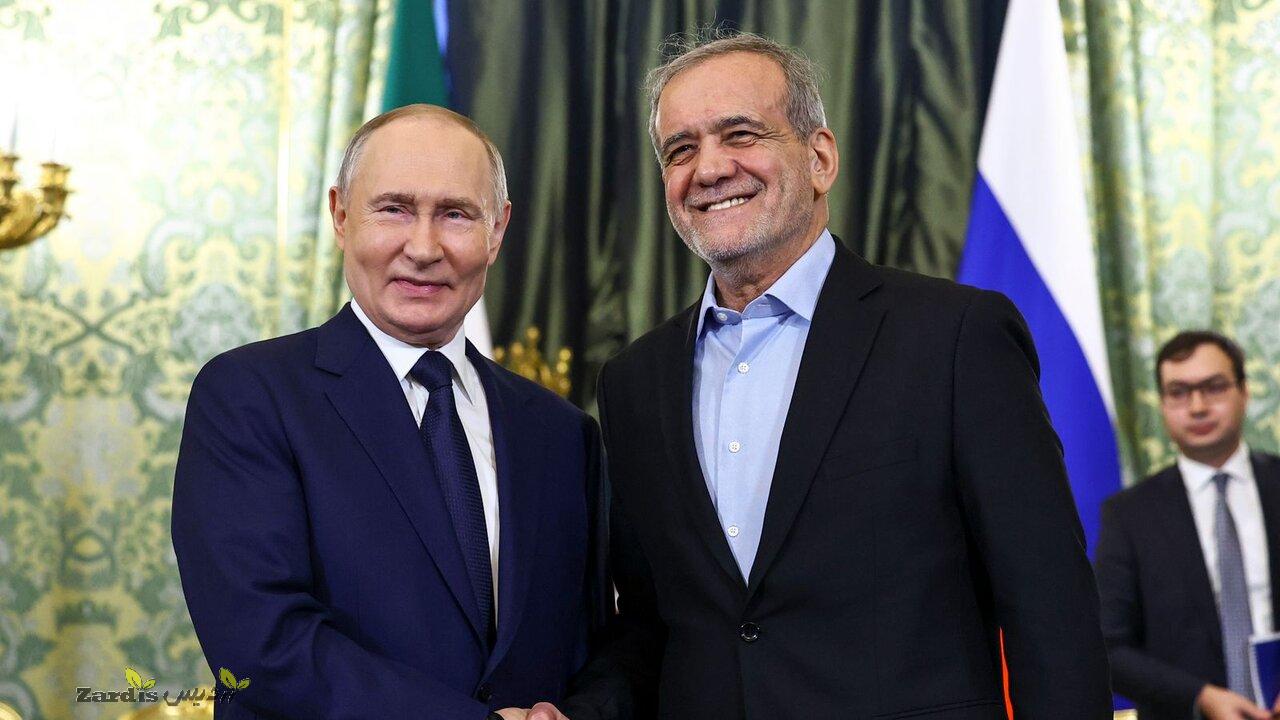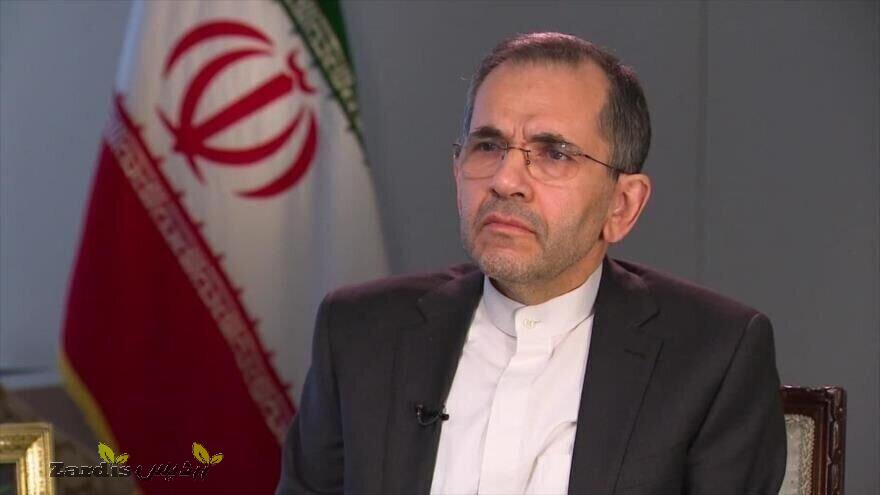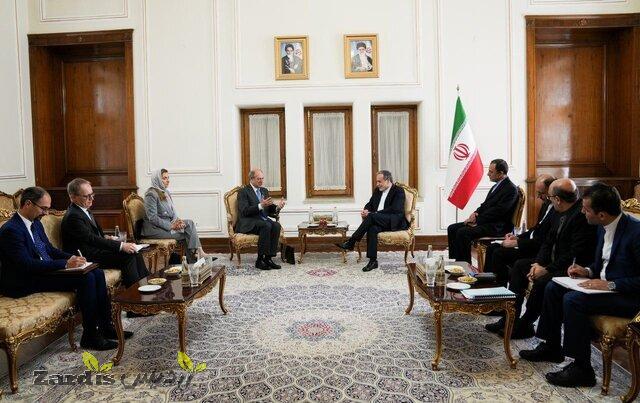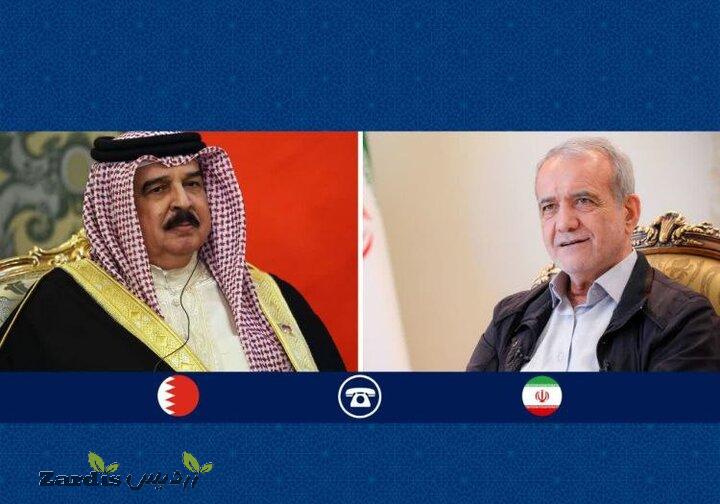TEHRAN – In an exclusive interview with the Tehran Times, Iran’s Deputy Foreign Minister for Legal and International Affairs Mohsen Baharvand has elaborated on a range of issues concerning the Ukrainian place crash in Iran.
The Iranian diplomats provided thorough explanations to questions on the plane case. He said Iran has done all its duties in terms of conducting investigations into the plane crash and paying compensations to the victims’ families.
He also criticized a recent Canadian report putting the blame on Iran, underlining that Canada needs to change its attitudes toward Iran if it wants better relations with the country.
Following is the full text of the interview:
Q: What are the latest developments in the Ukrainian plane crash case and what steps have been taken so far?
A: We have a dual feeling when we talk about the Ukrainian plane; one aspect it is an emotional one that is very bitter and unfortunate, and we always feel that we should not say something that offends the relatives of those who lost their lives in this incident. On the other hand, the law imposes duties on the Ministry of Foreign Affairs that must defend national interests. Therefore, while expressing sympathy and regret that this incident happened by mistake, we have to make a series of comments on this issue again in the formwork of the laws. The foreign ministry is a civic body and it has no role in these issues, but when foreign countries get involved, the foreign ministry is obliged to defend the country’s interests. Almost all research shows that the Ukrainian plane has been crashed due to a human mistake.
Even the technical team of a country like Canada has recently prepared a report emphasizing that there was no reason for the crash of the Ukrainian plane except human mistake. Iran was the country that suffered the most, both in terms of its image and the number of people killed in this accident. And the first country to take this issue seriously and take the necessary action was the Iranian government. Not another country. Well, it was a situation that it might not be necessary to elaborate on the conditions, but we were in a very good position at the time, and this human mistake and the plane crash took away many of the opportunities we had at the time. And it did a lot of damage to Iran. Therefore, there was no need for anyone to come and create a situation that would undermine your position. All investigations, whether judicial investigations, investigations by the accident investigation team, or investigations carried out by the security forces, and all indications are that a human mistake has occurred. Three days after the incident, which was also a day off, Iran announced that the fall was due to a human mistake by our armed forces.
Many believe that it was announced too late while this is not the case. When you see every plane crash in the past, many countries have not gone under the burden with vague words, or it has taken several years for someone to accept that this has happened.
Just because a missile hits a plane does not mean you can tell who did it. Or any other word you can say. But from the beginning, it was decided to deal with this issue very clearly. The cause of the accident and the perpetrators of the accident should be brought to justice, compensation for the victims is paid and according to Iran’s international obligations, the accident should be reported. And almost all the obligations that we had, both under international law and in our domestic law, we tried to fulfill them one by one. It may be argued that in the first three days were a series of comments that were wrong. Usually when an accident occurs, relevant or irrelevant people may comment. But the main issue that the Iranian government accepted was that a missile hit the plane due to a human mistake and it has caused it to down which shows Iran has undoubtedly accepted the responsibility in the shortest possible time that a plane crash has occurred. Since then, we have worked in two aspects. One was the tasks we had to do. As I said, in orderly manner to report the accident, which is very important, by the national aviation, and it was done. Because you are transferring your experience to other countries, measures should be taken to prevent the recurrence of such accidents and others took similar measures, and arrangements should be made so that such an accident does not happen again. We announced this earlier than the deadline announced by the Chicago Convention, and we worked around the clock to get the report announced as soon as possible, and the accident investigation team also made its own report. After that, in the judiciary, the judicial organization of the armed forces, started its investigations because the suspects and defendants were military personnel. And immediately the operator of this anti-aircraft system and the rest who may have been involved in this were arrested. Many were punished within the Iranian armed forces. Eventually, ten of those arrested were charged and their cases went to court. The three judges of the court have studied the case, and now the lawyers of the plaintiffs, who are the families of the victims of 103 people on board, are also studying the case, and the trial will probably start in less than a month, and the court will consider this issue and various military ranks, from high ranks to low ranks, are also among these ten people. We have an international obligation to pay damages, which was our other duty. That is, in the Warsaw Pact, we have an obligation that for every casualty, you have to pay about twenty thousand dollars because I do not say exactly because it is calculated with Special Drawing Rights (SDR). But the government take measures beyond this agreement and allocated 150,000 dollars for each deceased person. This money is available now, and some families have received this compensation, and some may come soon, and this is ongoing. And there is a readiness to pay that money. This money is given to all passengers without discrimination whether Iranian, foreign, male, female, or child. There is no difference in the type of payment and everyone can receive this amount equally. Foreign nationals can receive their compensation amount through their consulates in Iran and through inheritance monopolies, via their lawyer, or through a representative or embassy.
Q: Have foreign nationals taken action to receive the compensation?
A: No action has been taken by foreign nationals so far, but two countries are scheduled to come and we are waiting for them to submit their legal documents and receive their compensation.
Another issue is that when such an accident occurs, you should make the necessary adjustments to your air defense system to avoid a recurrence of such an incident, which has been done so that now the sky of Iran is completely safe, and if there was anything, all these factors have been examined by our Civil Aviation Organization and our Armed Forces.
Another issue is negotiating with other countries that may have lost their citizens or Ukraine as the country that owns the aircraft. We negotiated three times with Ukraine. Two rounds in Kyev and one round in Tehran.
And firstly, we explained everything we did. Secondly, they have been provided with as much information as the Ukrainian authorities wanted and they met with Iranian officials, for example, the Ukrainian judiciary talked to our judiciary and with the armed forces, and legal departments of two countries talked to each other.
And we have tried to say what happened. When an accident occurs in general there is no just one cause. A chain of causes is involved that causes an accident. The same goes for the Ukrainian plane.
When you write the accident report, it is at the disposal of the whole world, at the disposal of Civil Aviation Organization of Iran (ICAO) as the organization that is the reference of the Civil Aviation Organization in general. They study it, they scrutinize it, and if you do not explain this chain of causes correctly, they will definitely warn you.
When our investigation team completed the report of the Ukrainian plane crash, we made it available to several countries. One is Ukraine and France, a place where black boxes are read and where aircraft are designed, and to the United States as the manufacturer and their specialists. To Britain, a country that helped with investigation.
This report was acceptable to the technical experts of these countries and they also appreciated the report. In addition, a copy of this report was provided to the International Civil Aviation Organization (ICAO) and the recommendations contained in this report that would not cause a similar accident in the future were also put on the agenda by ICAO.
The International Aviation Authority accepted those recommendations as a credible report and had some very good recommendations that ICAO would put on its agenda and outline the steps that should be taken to prevent such incidents from occurring in the future.
We almost tried to explain the details in the negotiations with Ukraine and the rest. On the first day of the accident, Ukraine and Canada asked us to send their own investigation teams to come and cooperate. On the same day, we immediately ordered our embassy in Ankara, even though we have no diplomatic or consular relations with Canada. We gave them an Iranian visa as soon as they arrived in Ankara.
About 50 people arrived from Ukraine and were taken to the scene of the accident and were informed about these issues from the first day. This is a set of actions that we have taken on duty, both in terms of international law and domestic law, and their implementation is being pursued and is almost finalized.
Q: You mentioned the recent Ukrainian talks. What exactly did Ukraine want from Iran?
A: We have tried very hard to provide countries with data based on the law if they have a request. For one very obvious reason: We did not hide anything to deprive others of some information.
Therefore, if they wanted information, we provided it to the Ukrainians in accordance with the law, but the Ukrainians still want information that is neither known in principle nor can be provided in accordance with the law.
For example, they want information from our defense system that this information cannot be provided because it is related to the security of our country and is a part of military secrets and no country can provide this information to anyone.
At the same time, the information they ask of us, which we cannot provide, is an exception, because they ask for information that according to international law and the relevant convention, the judicial proceedings are within the jurisdiction of the country in whose territory the accident took place.
Q: Do the Ukrainians demand that the Iranian defendants be tried in the Ukrainian courts and judicial system?
A: No. They want information that they themselves can file a separate case about this incident. Of course, from a legal point of view, Ukraine can file a case regarding the fate of its citizens and what happened to them.
And this is a legal process that can go through, but the kind of information that they want is information that they would rather say in their absence that they have jurisdiction over this case, while this is against legal principles and the country in which the accident took place has jurisdiction over it.
At the same time, we provided a lot of information to Ukraine. There were only these two exceptions. Other things if they wanted a meeting with our prosecutor, this has been done.
If they want to meet with our military section to explain to their military officials how such an incident happened, they have been provided with a lot of other information that we have provided in writing to make sure that the accident is due to a human mistake and secondly we have nothing to hide and we give them as much information as possible.
Q: Who were some of the highest-ranking Iranian officials who were reprimanded or appeared in court, and what was their specific rank?
A: According to Iranian law, case information cannot be disclosed before a trial. We do not have a court case and we are not involved in it, but as soon as the court starts hearing, the lawyers of these families will be present. The families of the victims of the accident may be present and it will become clear at that time.
Q: Regarding Canada and a recent report by a Canadian government agency, the Canadian Foreign Minister issued a statement saying that Canada had not found any evidence that the crash was intentional, but blamed Iran for the incident. What is your assessment of this report?
This report is of no value under international law, meaning it is an incomprehensible report because under the Chicago Convention, the Annex 13, country where the accident took place must prepare a report stating what happened and not another country.
Now suppose another country has information that it wants to report. Instead of reporting, it should provide information to the country where the incident took place.
Therefore, in the Chicago Convention, many powers have been given to the country where the accident took place, and it is reasonable because it happened in the territory of that country and the principle is in good faith, and a series of reports must be given to increase the security of the country’s aviation.
The reports provided by the accident investigation teams do not basically involve criminal discussions or blaming an individual, but rather aim to explain the causes of an accident and how similar accidents can be prevented.
So, first of all, the report prepared by Canada, because it is not responsible for investigating the accident and has incomplete information about the location of the accident and the details of the accident, has no international impact or value, but nationally it was important for Canadian officials to say what Something has happened.
There are conversations that are very general. If you look at them professionally, it doesn’t really make sense. And it makes no sense to you. For example, we say that it is true that this incident was unintentional, but Iran is responsible for this incident. So, what should Iran do?
Every country must do the same things we did. Iran has fulfilled all its responsibilities under international law. What does it mean to repeat that Iran is responsible for this incident?
If Iran is responsible, it must take a series of actions that are clear and not something that has just been invented or is the first accident in the world. We have done our duty.
I am sometimes very disappointed that some countries think that only they understand the law. Only they can report honestly. Only they can compile a technical report accurately. And when things happen, we see that they are very weak.
It was the work of Canadians to bury hundreds of children alive in Canadian schools. As a result, you cannot claim that you are the only one who understands the law and that you are the only one who is very civilized and understands the issues.
International law, on the other hand, is no longer an unknown science. These sciences are no longer a strange thing. No one is going to reinvent the wheel. An accident has happened and Iran has done all its duties. Now you say Iran was responsible for this incident, what is the consequence?
The result is a series of actions. Where did we not take the actions that were our responsibility? Rhetoric in the form of general and vulgar rhetoric is always misleading to the world’s public opinion. Iran has taken action and this case must finally be closed at some point. Every time you say these general things, it means that you intend to continue this fight, which is also fruitless.
Q: Did Canada request cooperation with Iran in preparing this report, and if so, did Iran cooperate or did Canada itself prepare the report unilaterally?
A: Canada has taken action in the form of Ukraine’s consultant, and the Canadian technical team has participated and made recommendations. The Iranian accident investigation team also accepted almost 70% of the recommendations in the official Canadian report, which was in the form of a national aviation organization.
It was joint cooperation for air safety, not for any other purpose. As a result, from a legal point of view, the report of Iran is considered official by Canada, which has special rules for preparing this report, but what we did was that experts from the United States, Britain, France and Canada approved the report and praised Iran and gave a series of comments that it’s better to do.
We have done this, but when this report is presented to the Canadian political sector or the political sector of another country, they raise issues that are not in line with what the technical department and their experts say. It is more a matter of politics and blaming this and that, and these issues are of no value in terms of national aviation and national aviation safety.
Q: You mentioned mass graves in Canada. Iranian Foreign Ministry spokesman Saeed Khatibzadeh referred to the issue and somehow linked it to the case of the Ukrainian plane, saying that Canada is not in a position while such incidents occur inside its country, either on human rights issues or on the issue of the Ukrainian case to blame Iran. what is your opinion?
A: Canada and any other country can speak to Iran in its own way with mutual respect, and Iran has no weakness or fear of answering or asking questions.
What makes us have this attitude towards Canada is that Canada always tries to have a negative attitude towards Iran, whether politically or in international organizations or even doing illegal things.
This means that we are not actually negotiating with Canada. We have no demand from Canada. Canada completely illegally does not accept the state immunity of our country and has confiscated our government property, not just our diplomatic property, and Canada is indebted for this, and sooner or later it must return to Iran this amount or the buildings it has confiscated or sold.
This issue will not be forgotten and this is part of Canada’s debt to the Iranian nation and the Iranian nation’s money must be repaid. So, this is our problem. Canada or any other country in this international system, if it has any questions or criticisms, should be raised within the specific international framework that exists.
If you do not consider Iran’s international immunity, what is our motivation, if one day we want to negotiate with Canada, go and sit at the negotiating table? When our property is not safe and it is confiscated. Why do this?
Which country has done this to Iran, except the United States and Canada? Therefore, our problem with Canada is not only the issue of the Ukrainian plane, but also the general attitude of Canada towards Iran, which makes us have this position towards Canada as well.
Q: One of the issues that is constantly raised in the case of the Ukrainian plane and somehow blames Iran, and even mentioned in the Canadian government report, is when the Tehran region was on military alert, why the civilian plane did not stop to fly by the Iranian side? This has even been raised in the negotiations. What has been Iran’s response?
A: As far as I know, closing the sky is not a commitment. Only precautionary measures have been raised to be taken. You do not see anywhere that if a country is involved in a conflict somewhere, it must close its skies. This does not happen.
This is not a commitment that must be fulfilled. Secondly, our conflict zone with the United States, that is, the region and base of Ain al-Assad that we targeted, was seven to eight hundred kilometers away from Tehran.
That is, no one guessed that suddenly an accident would happen to the plane that was just taking off from the airport, while at that time the Iranian sky was really clear. If you look at that date, you will notice that there were not many civilian planes in the Iranian sky.
There is another matter. Part of the risk assessment is the responsibility of the airliner. It is not just a government duty on its sky the flights are ongoing, but an airline whose owner must have a risk assessment.
If it sees a conflict somewhere and something might happen to his plane, it should check and not fly. For example, British Airways was flying over Iraq and did not enter Iran’s sky and returned and announced that the risk of flying in Iran’s sky was high.
You have to keep in mind that there were other flights before the flight of the Ukrainian plane, and that in itself is a question of why the Iranian defense system did not target other planes.
The reason is that 5 minutes before the flight of the Ukrainian plane, this defense system, which was a mobile system, changed its position and all the problems started from here, and it could not see the real direction of the plane from the radar, and for this reason, it fired at it. However, there are several reasons and one is this.
Or, for example, there are other rhetoric. For example, Canadian delegations to executive councils say Iran has bulldozed the area. There is no such thing at all. This has never happened. I have photos here that I can prove did not happen.
It is true that there are traces of car wheels because it is a playground and heavy and non-heavy cars passed through it and nothing was collected with a bulldozer at all. On the contrary, great care has been taken in gathering evidence.
If Iran wanted to do this, it would not have accepted responsibility from the beginning and for example say that the missile had been fired, but it does not know who was responsible for this. Or, for example, to say that we are investigating who did this, or, for example, that ISIL was involved in this incident.
Countries can make excuses if they want. When Ukraine shot down a Siberian plane over the Black Sea, it did not admit that it had shot down it while they were busy with anti-aircraft drills. They did not accept it until their commander’s voice was heard by the Americans. No one was summoned to court. They only punished administratively. But they denied it to the end.
Q: In your opinion, when will the case of the Ukrainian plane be closed, either in the judicial process inside Iran or in talks with other countries?
A: In our opinion, this case is closed when we have done our duty, when the trial took place and the compensation was paid, within a reasonable period of time, those who want to can go to the Ministry of Roads and get their compensation.
But we cannot say. This issue will not end for another ten years if no one comes to get compensation. We even reviewed this in the ICAO Executive Council. When these things are over, we will do our job.
Q: We have questions about the developments in Afghanistan and the intensification of Taliban activities …
I do not know much about Afghanistan. I do not belong to the political sector. I am in charge of borders as a legal department and that is why I went to Afghanistan.
I am responsible for the legal and political issues of the country’s borders. Our eastern borders are also the borders where we travel a lot and we have always had good exchanges with Afghanistan and our border security is interdependent.
Q: Measures have been taken regarding the borders of Iran and Afghanistan with regard to the advance of the Taliban? Has Iran increased security? Has it increased its forces?
A: The security and military forces must have measures, but I did not see any sign that our land is in danger.
Talks with the Taliban were done, whether through the Ministry of Foreign Affairs or other channels, that the Taliban recognize Iran’s borders and do not make a claim on border with Iran, and if the Taliban dominate Iran’s crossings, does Iran have any plans and negotiations with the new Afghan government which is the Taliban?
These are political issues. I do not think that Iran is a country that needs someone who wants to identify its borders. Borders are a definite thing. Iran is also a powerful country. In general, we can say that Iran is the most powerful country in the region, and therefore it does not need to say that you recognize our borders.
While not only the Taliban or any other individual and country, these borders are clear, Iran is watching its borders and it is not very necessary to do these things. Finally, Iran’s national and ideological interests must be preserved. Iran is a strong and powerful country that can protect its interests in any situation.
- News code 26555
- 222 View
- بدون نظر
Zardis news | The latest news of Iran and the world
تمامی حقوق مطالب برای Zardis news محفوظ است و هرگونه کپی برداری بدون ذکر منبع ممنوع می باشد.
طبق ماده 12 فصل سوم قانون جرائم رایانه ای کپی برداری از قالب و محتوا پیگرد قانونی خواهد داشت.
طراحی و اجرا: سامانه سایت ساز زردیس



